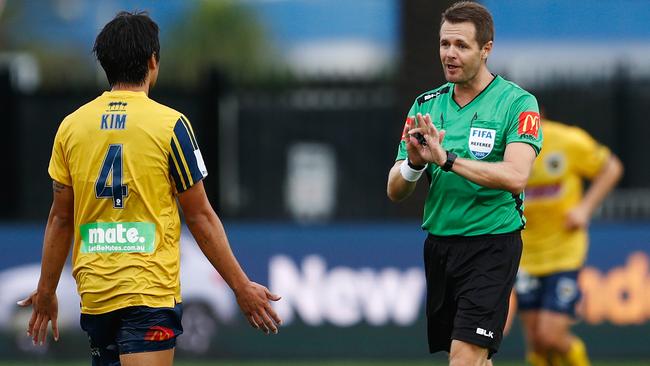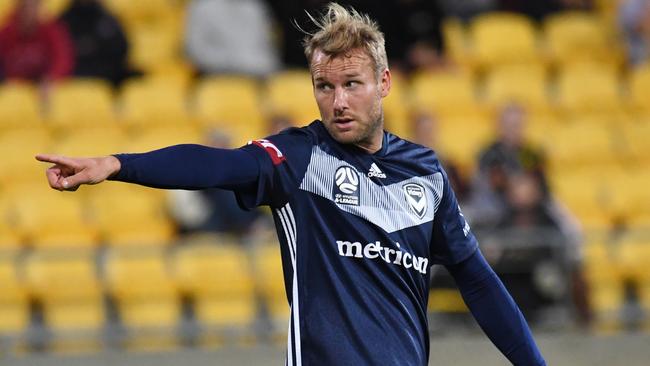Some foreign players in A-League struggle to simply put food on the table with no pay coming in
Foreign players at three A-League clubs have not been paid since mid-March, leaving them reliant in some cases on cash handouts from their union or on money sent from family in their homelands.

A-League
Don't miss out on the headlines from A-League. Followed categories will be added to My News.
- Scale of cuts show Aussie football now in survival mode
- ‘Bidding war’ may yet decide where A-League ‘hub’ located
They are the A-League’s forgotten foreign legion – the visa players who have not been paid a cent since mid-March, and yet will be expected to play again if the competition resumes as planned in July.
With foreign players excluded from the Government’s JobKeeper program, visa signings at a majority of the A-League clubs have still been paid an equivalent sum by their employers since the point they were stood down when the league was suspended.
Sydney FC paid all their players in full in April, and Melbourne City have throughout.
But the foreign players at Adelaide, the Mariners and Perth have not been paid since March, leaving them reliant in some cases on cash handouts from their union or on money sent from family in their homelands.
Stream over 50 sports on-demand with KAYO SPORTS on your TV, computer, mobile or tablet. Just $25/month, no lock-in contract. Get your 14-day free trial and start streaming instantly >.

Some have told teammates that their health insurance has not been paid by their club – usually a condition of their visa – and others have found out from landlords that their accommodation is overdue. Others, such as those at the Mariners, were told they could access their superannuation.
Some visa players, such as Mariners defender Kim Eun-sun, have returned home during the A-League’s suspension and almost certainly won’t come back, at least in time for the final month of the season due to kick off on July 18.
They now have the right to sign elsewhere, with Melbourne Victory marquee Ola Toivonen widely expected to join Swedish side Malmo.
Others have preferred to stay here, given Australia’s relative success so far in controlling the coronavirus, even though they have been left in some cases scrambling just to put food on the table.
Perth Glory, the Mariners and Adelaide all declined to comment.
In the UK, the government’s JobKeeper-style scheme explicitly includes foreign employees based in the UK, and a number of lower league clubs have used it.
At least there is the promise of some relief coming up. As part of the pay deal agreed with Football Federation Australia and the A-League clubs last week, all players will receive a proportion of their usual wages for the three months of June to August, through a mix of FFA’s central grant and JobKeeper.

Clubs are also obliged to pay any outstanding entitlements by the middle of June, including the five weeks of annual leave each player is due but has not been able to take.
But with huge uncertainty over the status of the last three years of the A-League’s broadcast contract with Fox Sports, and no matchday income expected to be earned by clubs for many months, some of the players involved say they aren’t looking to the future with any degree of confidence.
“It was the clubs that brought us here, surely we are their responsibility?” said one.
“In many cases we can’t leave, because there aren’t flights or they cost a fortune.
“It’s very sad when we get left to fend for ourselves like this.”
Originally published as Some foreign players in A-League struggle to simply put food on the table with no pay coming in


